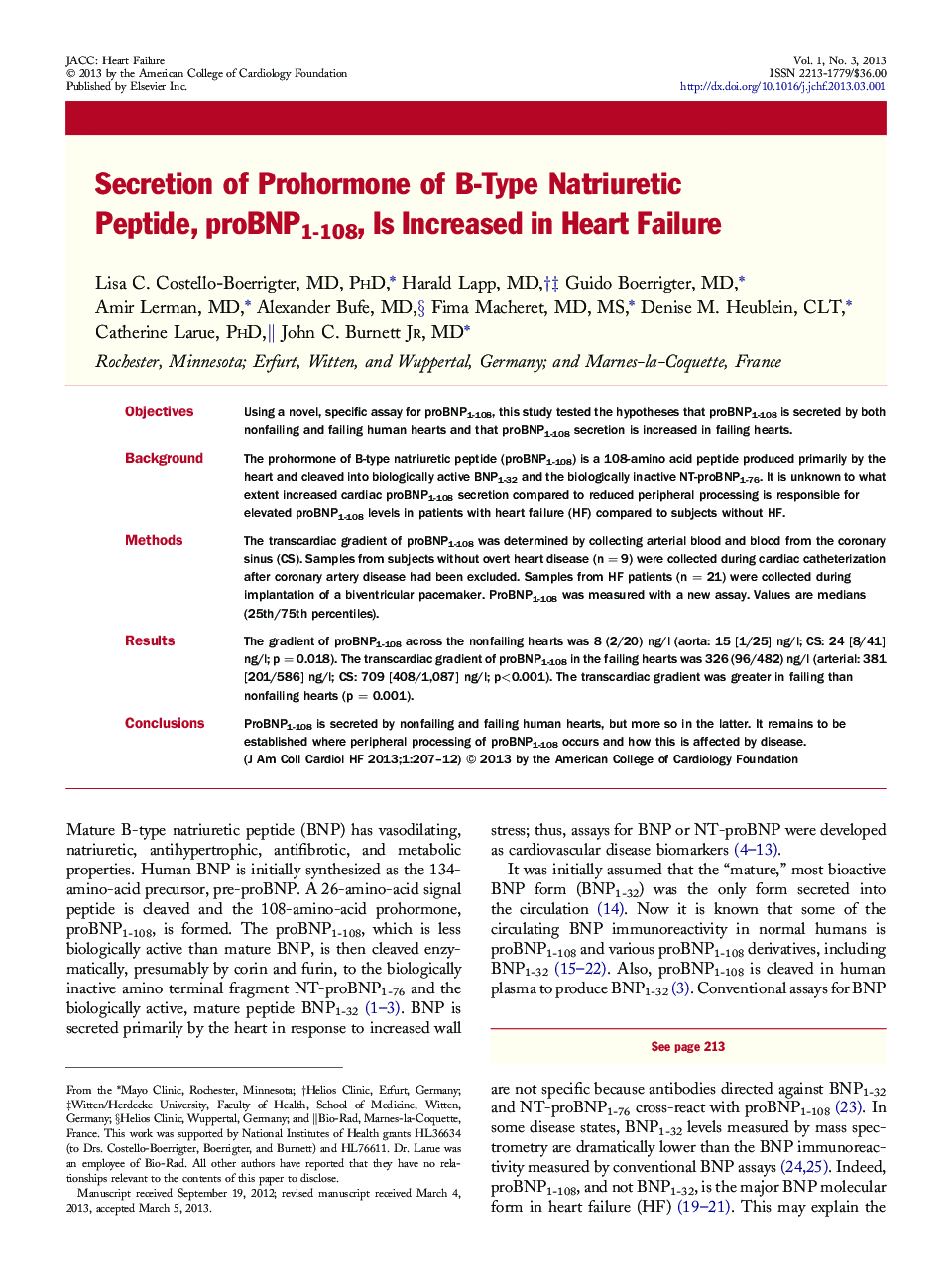| Article ID | Journal | Published Year | Pages | File Type |
|---|---|---|---|---|
| 2942632 | JACC: Heart Failure | 2013 | 6 Pages |
ObjectivesUsing a novel, specific assay for proBNP1-108, this study tested the hypotheses that proBNP1-108 is secreted by both nonfailing and failing human hearts and that proBNP1-108 secretion is increased in failing hearts.BackgroundThe prohormone of B-type natriuretic peptide (proBNP1-108) is a 108-amino acid peptide produced primarily by the heart and cleaved into biologically active BNP1-32 and the biologically inactive NT-proBNP1-76. It is unknown to what extent increased cardiac proBNP1-108 secretion compared to reduced peripheral processing is responsible for elevated proBNP1-108 levels in patients with heart failure (HF) compared to subjects without HF.MethodsThe transcardiac gradient of proBNP1-108 was determined by collecting arterial blood and blood from the coronary sinus (CS). Samples from subjects without overt heart disease (n = 9) were collected during cardiac catheterization after coronary artery disease had been excluded. Samples from HF patients (n = 21) were collected during implantation of a biventricular pacemaker. ProBNP1-108 was measured with a new assay. Values are medians (25th/75th percentiles).ResultsThe gradient of proBNP1-108 across the nonfailing hearts was 8 (2/20) ng/l (aorta: 15 [1/25] ng/l; CS: 24 [8/41] ng/l; p = 0.018). The transcardiac gradient of proBNP1-108 in the failing hearts was 326 (96/482) ng/l (arterial: 381 [201/586] ng/l; CS: 709 [408/1,087] ng/l; p<0.001). The transcardiac gradient was greater in failing than nonfailing hearts (p = 0.001).ConclusionsProBNP1-108 is secreted by nonfailing and failing human hearts, but more so in the latter. It remains to be established where peripheral processing of proBNP1-108 occurs and how this is affected by disease.
